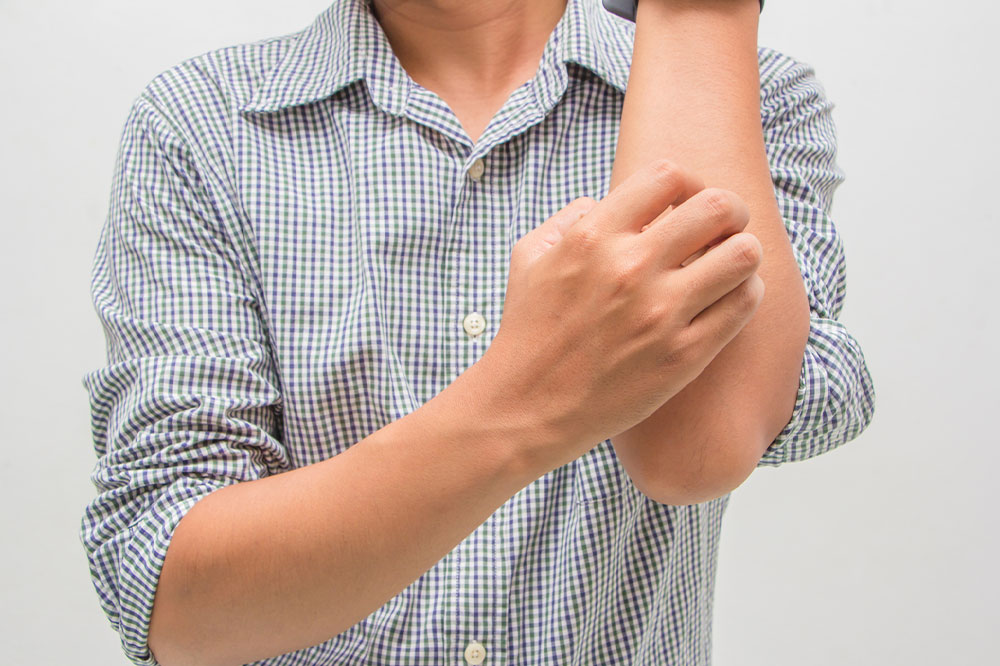Common types of soaps that trigger eczema

Eczema is a skin condition that causes the skin to become red, itchy, and inflamed in the presence of certain triggers. Despite being one of the most common skin conditions, the exact cause is unknown. Eczema can arise anywhere on the skin and affect any body region. It causes skin rashes, dryness, lumps, peeling, and redness. The most common cause is dry skin. Soap ingredients are one example of a possible trigger. The following are some common types of soaps that trigger eczema.
Antibacterial soaps
Several antimicrobial soaps contain alcohol or other harsh chemicals. These substances may cause dry skin. Dry skin is already an issue for people with eczema, and avoiding cleansers can worsen the condition. Instead of using harsh antibacterial soap, washing away bacteria and other germs using the proper method is more important.
Soaps with propylene glycol
Many moisturizers, soaps, and creams contain propylene glycol. It benefits some people with eczema due to its moisturizing and emulsifying properties, but it may irritate and cause rashes in a few others. It is critical for people with eczema to patch-test new products before using them on their skin to avoid rashes and flare-ups.
Soaps with many artificial fragrances
While scented skin care products appeal to the senses, they can harm the skin’s barrier. Patients with eczema frequently experience irritation from fragrance-mixed items, which can also result in true allergies. Several skin-care products use essential oils to give them their scents, so look for products free of artificial fragrance and natural, potentially irritating extracts.
Soaps with Methylisothiazolinone
Cosmetics and some soaps contain these preservatives. If someone with eczema uses products with these additives, they might experience more breakouts. It is essential to read the product labels, ingredients, and parts before purchasing.
Other triggers of eczema
Dry skin
Eczema flare-ups can occur when the skin is dehydrated and feels tight, rough, or even scaly. Scratching dry skin increases irritation and redness. One way to treat dry skin is to keep it well hydrated, especially in winter or dry locations.
Stress
Although emotional anxiety and stress do not cause eczema, they can worsen symptoms. When the body is stressed, it produces a hormone called cortisol. When the body produces excessive cortisol due to chronic or severe stress, it causes an inflammatory response in the skin. This eczema appears to be tiny, extremely irritating hand and foot blisters. Speaking with a doctor or therapist can help manage this problem.
Certain foods
Food allergies, including those to milk, eggs, peanuts, and wheat, have been connected to some cases of eczema. If a flare-up occurs after consuming a specific food, consult your doctor and a registered nutritionist to see if temporarily avoiding that food would be beneficial.
Exercise
Even though exercise is great for the body, excessive sweating may cause an attack to start. This is because human sweat contains trace amounts of nickel, zinc, copper, iron, and sodium, and the buildup of these natural chemicals on the skin can worsen eczema.



